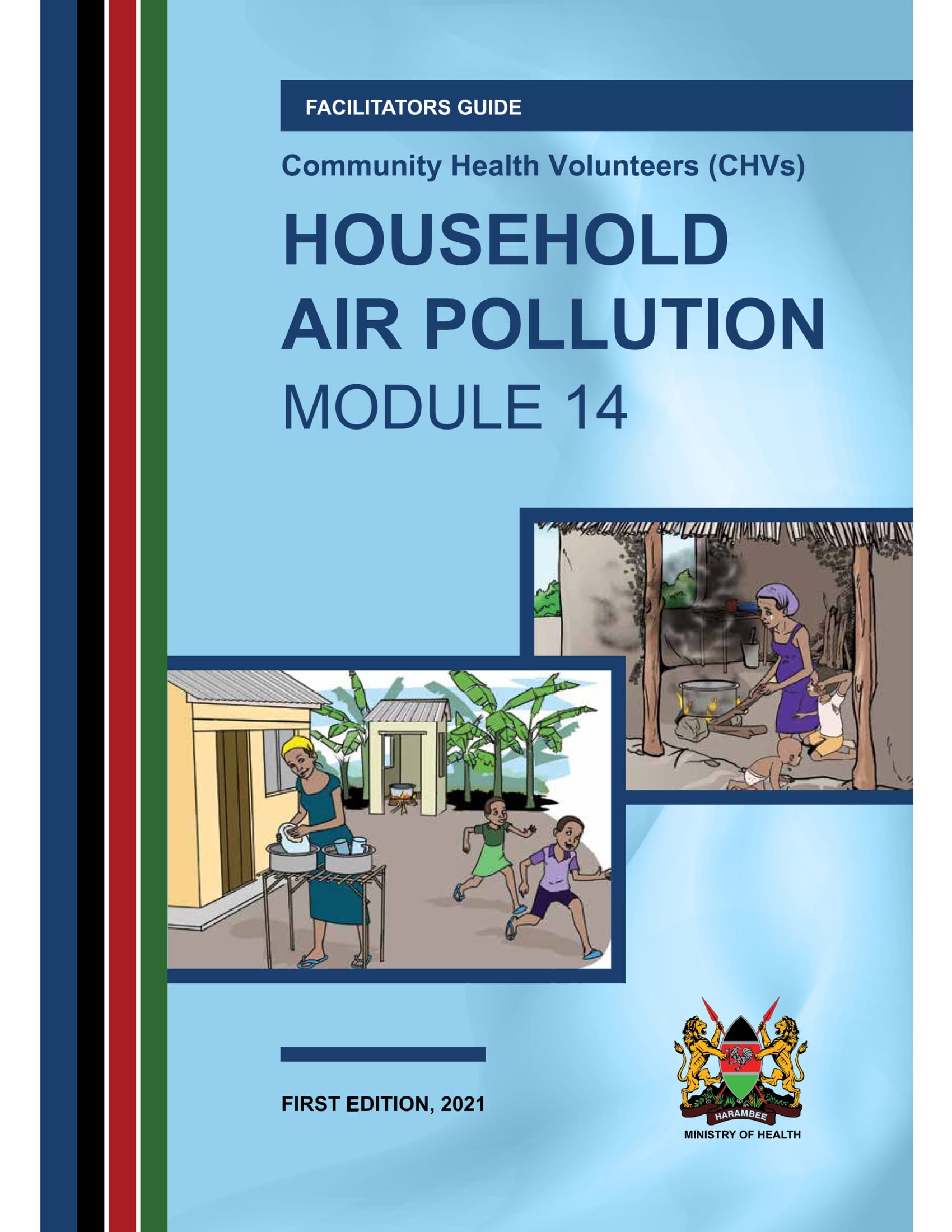Household air pollution



In 2006, the Ministry of Health launched Community Health Strategy in Kenya. This was in line with Kenya’s stated commitment to good health for all Kenyans. Indeed, health is not only a right but also a responsibility for all. The promotion of good health at different levels of society is the responsibility of all individuals, families, households, and communities. The purpose of the Community Health Strategy is to enable communities to improve and maintain a level of health that will enable them to participate fully in national development towards the realization of Vision 2030. Participants and Community Health Volunteers are critical in household air pollution especially in the prevention and control of pollutants.
The development of this manual has been guided by Kenya’s constitution, the Vision 2030, the Kenya Health Policy 2014-2030, and other health sector policy and strategic documents. The manual aims at achieving the objectives stated in the Community Health Strategy 2020-2025 in Kenya by empowering households with knowledge and understanding of household air pollution. It endeavors to build the capacity of Community Health Volunteers on household air pollution towards achieving the aspiration of the strategy for Community Health and ultimately the Constitution of Kenya which guarantees the highest attainable standard of health as a right and not as a privilege. Further, this document will assist the Division of Community Health together with all stakeholders working in Community Health in achieving the ministerial objectives outlined in the sector’s strategic documents. This manual will form part of the technical Community Health volunteers manual and be captured as Module 14.
Among other strategic partners, the development of this manual was made possible through engagement with the University of Liverpool and their NIHR Clean-Air (Africa) Global Health Research Group.
With more than 30 years of research into the health impacts of air pollution and the effectiveness of prevention strategies, the University of Liverpool were able to provide state-of-the-art evidence to inform the contents of the manual and provide expertise in the direction of the delivery of training. In addition, the development of the module was funded by CLEAN-Air (Africa) and initial piloting of its contents was supported through funds provided to the team by the World Health Organization. We are
very grateful to the team at the University of Liverpool for their continued support in this endeavor.
The Ministry is also grateful to its staff, partners, and all stakeholders who contributed with technical and contextual input into the development of the manual. I wish to thank you for this tremendous effort, the interest, commitment, and involvement. In particular, the Ministry expresses gratitude to the University of Liverpool, GIZ, CCAK, MES, and Moi University for their unwavering technical and financial support towards the finalization of the document.
We, therefore, urge all stakeholders to use this manual to improve the household energy use leading to enhanced health hence improving health indices.